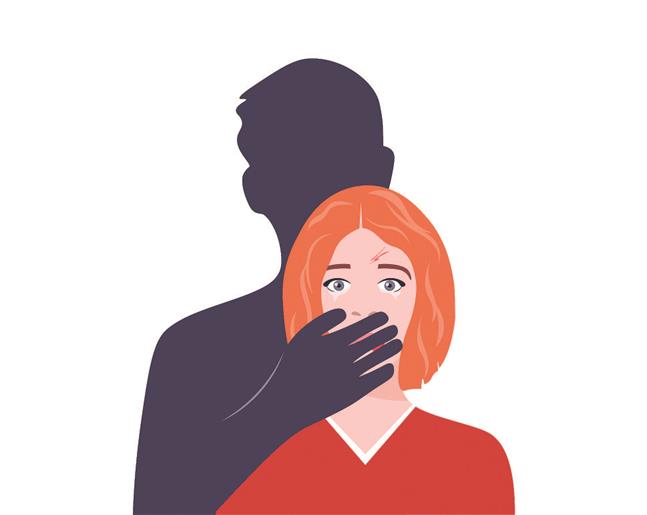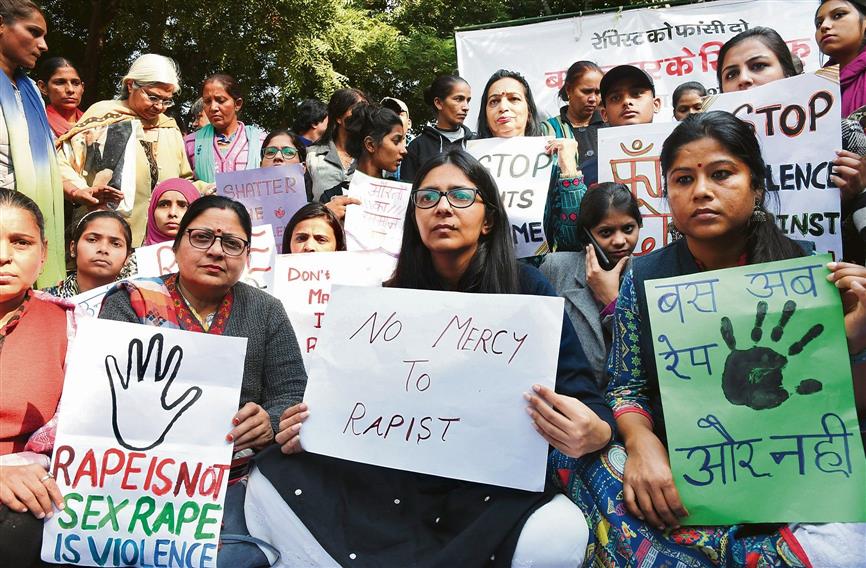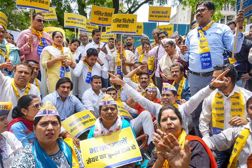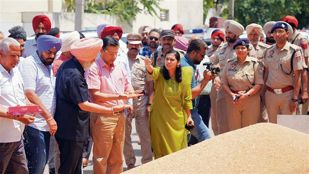
istock
Renu Sud Sinha
The recent gang-rape of a Spanish vlogger by seven men in Dumka district, Jharkhand, and the global outcry over the incident have once again put the spotlight on rising crime against women in India. With the foreign media extensively reporting the incident, it led to many foreign nationals sharing similar traumatic experiences of being sexually assaulted, being raped in hotel rooms, groped and getting unwanted sexual attention while travelling in India. For Indian women, the situation is equally grim, if not worse.

Nirbhaya effect
- The Criminal Law (Amendment) Act, 2013, criminalised sexual harassment, stalking, voyeurism, acid attack and lowered the age at which a person can be tried as an adult from 18 to 16.
- Fast-track special courts were dedicated to resolve rape cases and penalties were made stiffer.
- The Central govt created a non-lapsable ‘Nirbhaya Fund’ in 2013 for implementation of initiatives that enhance the safety and security of women in the country.
- The government has allocated Rs 7,212.8 crore from the Nirbhaya Fund up to the financial year 2023-24, of which Rs 5,118.9 crore has been released and utilised. The funds were used for various projects, including the Emergency Response Support System — 112, central victim compensation fund, safe city proposal, and fast-track special courts.
Irrespective of her caste, class and age, every woman in India has felt unsafe at some point in life, particularly while using public transport, says a senior woman cop. US-based journalist David Josef Volodzko, who lived in India for several years, posted on X, “The level of sexual aggression I witnessed was unlike anywhere else I have ever been.”
Madhumita Pandey, an author and senior lecturer in criminology at Sheffield Hallam University, UK, says there are many deep-rooted as well as situational factors that allow violence to perpetuate and for the cycle of abuse to continue. “It is very easy to get enraged when a rape case is brought forward by the media. But such isolated concentration on manifestations of severe sexual violence forces one to seek explanations in individual pathology and abnormality instead of questioning the wider society.”
Aggression has become more rampant in our deeply patriarchal society, and violence and crime against women have increased despite laws being made more stringent after the Nirbhaya rape case in 2012. At an average of nearly 90 rapes daily, 31,516 cases were reported in 2022, a 20 per cent increase from 2021, while the total number of cases of crime against women were over 4.4 lakh, according to the National Crime Records Bureau (NCRB). Many stakeholders, including police officials, activists and NGOs, say that reported cases do not represent the reality as the number of unreported sexual assault incidents is much larger because many women remain silent due to the stigma attached, or family pressure.
Mumbai-based Dr Nandita Shah, co-founder, Akshara, an NGO working for women’s rights and empowerment, says that for over 30 years, she and her team have been working for a society where violence of this kind does not occur. And that has not changed. “Because the biggest part still remains changing the mindset of men. Every small action like passing comments, touching, groping and getting away with it gives them a sense of power and impunity. This creates a sense of fear in a girl.”
That is because our patriarchal norms only teach women to avoid danger and never tackle it, says Sunita Thakur, a Delhi-based social activist. “We teach them to save themselves, instilling fear right from the beginning, unlike boys who are raised to face any difficulty. This gender discrimination is the root cause why women feel unsafe and why their safety remains an issue. If some boy passes a comment, the usual advice is to ignore, avoid, change the route, don’t go out after dark. This fear about their own safety often stops them from taking any initiative,” adds Thakur, who has been working for women’s rights for over 25 years.
“When you tell women to ignore unwanted sexual attention, it normalises the process for men. That has to be stopped,” says ADGP Satwant Atwal Trivedi, Himachal Pradesh’s first woman IPS officer. The biggest irony, she feels, is women talking to other women about women safety. “It is men and society in general who should start talking about it. More men need to be a part of this conversation,” she adds.
“Bringing a change in the societal mindset is quite a slow process. Till then, the onus of their safety lies with the women themselves,” says Sumitra Senapaty, founder, WOW (Women on Wanderlust) Club, who has been taking all-women tours across the world as well as India. “It’s sensible to take precautions while travelling in any country and not just India. There is safety in numbers so we move around in groups, stay in centrally located hotels (upmarket hotels also have women-only floors), finish sightseeing by 8 pm, avoid going out at night or go out in groups if it is late, stick to busy, crowded, well-lit places. It is not just women, but all tourists are vulnerable, so it is best to have some local contacts or guides, particularly for solo travellers.”
Former Maharashtra DGP-rank officer Meeran Chadha Borwankar, however, squarely puts the onus on men to control their behaviour, conduct and action.
Apart from the social problems, there are challenges with the policing and legal process as well. Delhi-based lawyer Ananya Kanoria says there is a huge lack of awareness among women about their rights, including what ‘qualifies’ as sexual harassment, or access to free legal services. Given the massive number of cases and lower payment rates, lawyers providing free services are not able to do justice to all cases.
Pandey says trials also take long due to a myriad of reasons, starting with issues with reporting and recording, not having eyewitnesses, delays in forensic evidence, stigma and trauma involved for the victims and their families, to name a few.
There may be roadblocks in the legal system but all stakeholders agree that the laws are more than sufficient. “It’s their implementation that needs a concerted effort. We do have very strong laws and gender-friendly policies,” says Borwankar.
Thakur concurs but finds lacunae in the system, which she thinks is quite patriarchal. “The police and courts work with the same patriarchal mentality.”
Shah, too, finds the present laws good enough, “if implemented strictly and the police and the judiciary follow through”.
Borwankar dismisses aspersions usually cast on police inaction. “The police comes into the picture after an offence has taken place. Prevention of gender violence requires community involvement that is weak in India. The easy way out is to blame the police instead of joining hands with them to identify gender hotspots, prompt reporting and involving local women for safety audits of their mohallas.”
Pandey, who has been involved with several police training workshops, also feels that not just policing, “we need to make several of our processes better so that the burden does not fall on just one criminal justice body”.
Gurpreet Deo, Special DGP (Community Affairs Division and Women Affairs), Punjab Police, says it is every stakeholder’s responsibility to make public spaces safer for women. She suggests safety audits of all unsafe zones and identifying places where corrective measures are needed, such as enhanced patrolling, more lighting at dark places, panic buttons in public transport, private taxis and even auto-rickshaws. Punjab Police are already conducting awareness programmes in schools and colleges across the state, she adds.
Shah says government responses, especially in emergencies, need to be improved. “At the moment, there’s no proper mechanism to emergency response. Besides, the government only takes responsibility for legislation implementation; it also needs to be a part of preventive measures.” She says there are no quick solutions, but advocates self-defence programmes for girls and offers practical tips to handle untoward situations. “Sometimes, girls freeze in fear, they don’t even scream. Learn to scream or run away because safety is important. But, above all, if something bad happens, don’t look at it as the end of life.”
Borwankar also cautions to be always alert and careful. “The NCRB data shows that maximum exploitation/harassment of girls and women is from close family or extended family members.” She suggests to not ignore such offences and report these matters to the police. “With around 12 per cent women in police, do not hesitate to visit your nearest police station. Interact and collaborate with the police on a regular basis. This would help in preventing gender crime through timely interventions and prompt response during emergencies.”

Way forward
- Engage with boys about gender respect and equality in families and schools; hold awareness programmes in colleges and workplaces.
- Safer public spaces through use of technology, like CCTV cameras, better lighting, display of emergency phone numbers and awareness and engagement about security apps.
- More women in transport and tourism sectors, more women hostels, short-stay homes and dedicated night transport for women.
- Trial of offences against women to finish within 18 months and appeals within a year; wide publicity to conviction of gender offenders; encouraging and rewarding bystanders’ intervention through focused campaigns.
- Building strong public pressure for implementation of gender-inclusive policies, especially about prompt trials.
— Meeran Chadha Borwankar is a retired IPS officer
Join Whatsapp Channel of The Tribune for latest updates.



























